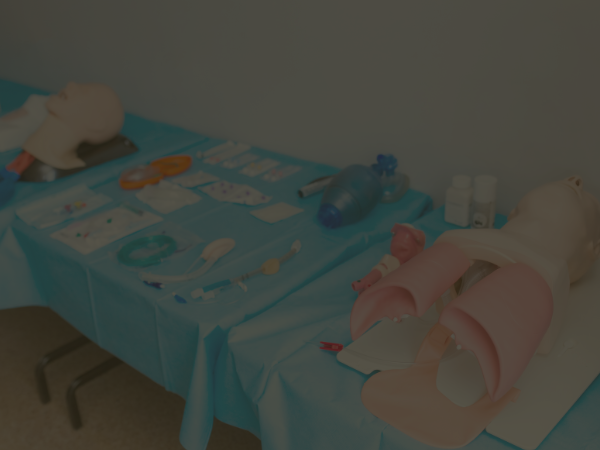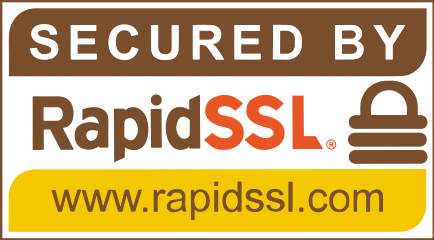Are you considering advancing or changing careers by entering a healthcare education program? You’re likely in for some enriching experiences but also challenges as you pursue this endeavor. What does it take to get a healthcare education in 2021? Do you have what it takes? Whether you’re thinking about online training or heading back to the classroom, here’s what anyone considering the pursuit of a healthcare certification or degree should prepare for and how to manage the common barriers.
What Types of Healthcare Education Might You Consider?
 Are you ready to put 8-15 years into becoming a doctor? Or does a 12-week online certification program match your style more? You have a lot of options that certainly can’t all be listed here. However, no matter what level of education you currently have, you can find healthcare programs that will help you further your career opportunities, such as:
Are you ready to put 8-15 years into becoming a doctor? Or does a 12-week online certification program match your style more? You have a lot of options that certainly can’t all be listed here. However, no matter what level of education you currently have, you can find healthcare programs that will help you further your career opportunities, such as:
Nursing Degrees
Nurses care for patients directly and coordinate care among other professionals like doctors, physical therapists, and social workers. As a nurse, you’re responsible for educating patients about caring for their health or specific illness and may spend more time with patients than a doctor does.
Nursing degrees come in levels of education and certification, with the entry levels taking as little as 12 weeks and the advanced levels taking at least six years. You could begin a program like:
- CNA – Certified Nursing Assistant, also called a Nursing Aid – training time four to 12 weeks
- LPN or LVN – Licensed Practical Nurse or Licensed Vocational Nurse, which varies by state – 12 to 18 months
- ADN – Associate Degree in Nursing, which is considered the first level of RN (Registered Nurse) – two years
- BSN – Bachelor of Science in Nursing, which is a more advanced RN. With special Nurse Practioner training, a BSN may become a Nurse Practioner who manages the whole patient care, writes prescriptions, diagnoses illness, and does other tasks usually reserved for a doctor – Four years
- MSN – A Master of Science often works in educational and advanced nursing roles. To receive an MSN, you need four years undergrad to obtain BSN plus two years post-graduate to get MSN.
- DPN – A Doctor of Nursing Practice usually works in advanced leadership and research. You’ll need three to four years if you already have a BSN.
Salary potential varies based upon the level of education and varies greatly depending on where you work and your job role. According to BLS.gov, the need for nurses is growing faster than average at a rate of 7% over 10 years. This is primarily driven by an aging population, which includes senior nurses retiring. But also the increased number of people with chronic illnesses drives the need for this special kind of person.
Medical Assistant
A medical assistant helps doctors and nurses with administrative and basic clinical tasks. According to BLS.gov, the need for medical assistants is growing by 19%. A medical assistant certificate requires the completion of a certification program.
Physician Assistant
A Physician Assistant works with a team of medical professionals to provide medical care. To do this job, you’d need to complete a Physician Assistant Masters healthcare education program. According to BLS.gov, this healthcare profession is growing 31%.
Medical Doctor
The healthcare education requirements for doctors vary depending on the specialty. It typically requires at least eight years at a university plus three to seven more years in a residency program. According to BLS.gov, this profession is growing at about four percent.
Respiratory Therapist
Respiratory Therapists help patients with breathing disorders breathe more effectively. This career requires an associate level healthcare education and is growing at a rate of 19%.
Paramedic /EMT
EMTs primarily go to the locations of emergencies after a 911 call to provide immediate life-stabilizing care such as CPR, respiratory support, and medication administration before transporting the patient to the nearest hospital.
There are three tiers of EMT: EMT-B (Basic), EMT-I (Intermediate), and Paramedic. The need for EMTs and Paramedics is growing by six percent.
Other Online Certification
Another way to get healthcare education is by getting online certification in first aid, CPR, basic life support (BLS), bloodborne pathogens. Even if you don’t plan to work in healthcare, completing online training like this looks great on a resume and may help advance your career.
Daycare professionals, teachers, caregivers, police officers, and just about anyone could benefit from getting a quality online certificate for CPR from a reputable organization that offers online training.
Other Challenges Students Face When Pursuing Healthcare Education in 2021
Those pursuing the above healthcare education degrees and certifications face various challenges in 2021. But for every barrier that exists, you’ll find a practical solution that will help you survive and thrive as a learner.
Managing Mental Health During School
Healthcare students face significant pressures as they pursue their degrees and complete residency programs. They additionally encounter the unique risks associated with COVID while performing practical assignments in a clinical setting, sometimes with limited resources. All of this can take a toll on mental health, as studies have shown.
Experts recommend that those completing healthcare education remain cognizant of the impact completing a healthcare program can have on their own mental and physical health. Research available mental health resources at your institution and in your community, and make sure you’re taking care of yourself mentally, physically, and emotionally as you learn how to help others in a rewarding healthcare field.
Getting a Late Start on a Career You’ll Love
Many people didn’t know what they wanted to do in their 20s. Now, here you are–40, 50, or older, and you’re wondering if it is too late to get a healthcare education. A long gap since college, greater family obligations, and even societal perceptions may seem like obstacles.
While there are some apparent challenges here, know that medical schools and other healthcare education institutions welcome middle-aged students as a breath of fresh air and look forward to the insights you bring to the classroom. They know that students like you bring life experiences that younger students don’t have.
You know how to juggle work, family, and school. And, chances are, you know the value of investing in your education. You’re driven to succeed and will do what it takes to learn and apply the material.
Finding Time for Coursework
Many people who are pursuing healthcare education already have a family, a job, and financial obligations. Keep in mind that getting a healthcare education is an investment of time during a period with the reward waiting once you complete your program. You may need to make sacrifices now but follow these tips to better balance your time and resources.
- Work a flexible job. If you’re still working, you may need to take a temporary pay cut and work something with a bit more wiggle room. This may mean cutting back on your expenses and having less disposable income but stay the course. It’ll be worth it.
- Commit to your health. When you focus on eating healthy and maintaining healthy habits, you’ll have more energy and a better mood. Surprisingly, it will feel like you have more time and can get more done in less time because of the increased energy and mood boost. Bonus: Prepare healthy snacks on a down day so you’ll have them ready to go when you need them and don’t have to turn to junk food. Pre-cut veggies, nuts, hummus, and individual servings of guac are all fast and filling.
- Stay organized. Start a day planner to track your assignments, so you always know what’s coming up and stay ahead of deadlines.
- Build a support system. Talk with friends and family about your plans before you start, if possible. Often they’ll want to support you in little or big ways because they care. They may be able to keep the kids on a weekend you need to study, take over some yard maintenance, pick up the groceries, or just offer a sounding board when you need to bounce ideas. No person is an island, so accept the help of others.
- Break it up. Avoid procrastination and break up more significant assignments into scheduled segments so you can digest material more thoroughly and feel less stressed.
- Explore online certification and online training options. If you have good Internet, it’s always easier to take courses online vs. heading to a class every night. Look for a program that allows the learner to do at least some of the work online. Depending on the type of healthcare education, you may find a 100% online certification.
Lack of Financial Resources
When you choose to become a healthcare learner later in life, you’re planning to make more money after completing the healthcare education. But for now, where does the money come from to pay the bills?
Chances are you will need to work at least a part-time job to meet your other obligations. But you’ll find a lot of support when it comes to paying education expenses.
Choosing a combination of these rather than just taking out loans will mean less to pay back later, so it’s worth looking into:
- Tax credits. You may qualify for the American Opportunity tax credit or the Lifetime Learning Credit. If you are eligible for both, choose the one that best benefits you. They both have pros and cons.
- Federal Pell Grants
- Federal Supplemental Educational Opportunity Grant
- Student Loans
- Scholarships
- Teacher loan forgiveness programs if you plan to teach
- State grants
- Crowdfunding
Not Understanding the Material
Many learners worry they’ll start a program and then hit a roadblock academically. But know there are a lot of resources to support online learners and classroom learners alike, such as:
- Forming a study group with other students
- Reading the syllabus to learn about helplines or other student resources
- Messaging the professor
- Seeking out a mentor who has already completed a similar certification or degree program.
- Hiring a tutor
You have options, so if you’re struggling, get the help you need for success.
Scheduling Conflicts
Some people cannot make it to a class three or more times a week. But they could find the time if they could work on their schedule. If you’re this kind of person, then looking at quality online training is definitely an avenue to explore.
While you still can’t become a doctor, nurse, or paramedic 100% online, there are many online certification programs you look into that would open the door to a rewarding healthcare career.
Finding Time for Continuing Medical Education Credits (CME)
 Once you get your degree or certification, you may be required to obtain a certain number of Continuing Medical Education Credits (CME) to maintain your license. The good news is you can now obtain CME through online training courses. This removes a significant barrier that those in healthcare once faced. No more trying to hire childcare to attend ongoing classes.
Once you get your degree or certification, you may be required to obtain a certain number of Continuing Medical Education Credits (CME) to maintain your license. The good news is you can now obtain CME through online training courses. This removes a significant barrier that those in healthcare once faced. No more trying to hire childcare to attend ongoing classes.
You can complete these types of certification programs in as few as two to eight hours, and you can pause this online training to complete it at your own pace when you have the time.
Consider getting certified or recertified in:
- CPR, AED, and First Aid to learn skills everyone should know to manage a cardiac event plus a variety of life-threatening or quality-of-life threatening emergencies.
- Bloodborne Pathogens
- Pediatric Advanced Life Support (PALS)
- Advanced Cardiac Life Support (ACLS)
- Basic Life Support (BLS)
Now Is a Great Time to Become a Healthcare Learner
Bottom line: Many of the barriers that once faced adult learners pursuing healthcare degrees and certifications are easier to manage and overcome in 2021. Advancements like online training have eliminated many obstacles, allowing more people to take advantage of educational opportunities.
Any healthcare career can be enriching, so begin exploring your options to see where 2021 takes you and your career.
What is your experience in getting the healthcare education in 2021? Share your story with us.







Leave a Reply